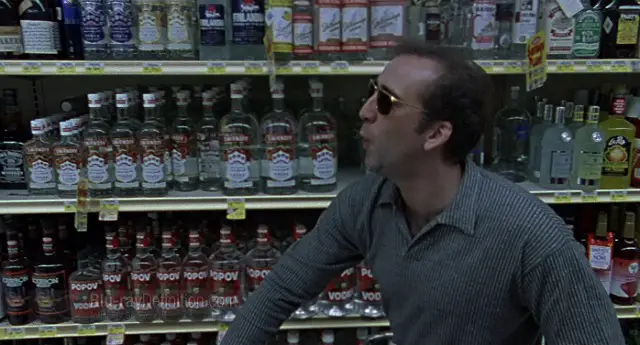Teetotalism as a Glass Half Empty
Hell is other people, especially when it comes to sobriety.
By Jessinta Smith, Suffolk County Community College
When it comes to sexuality, drugs and drinking, students are often told that college is a time for experimentation.
But what about those of us who choose not to experiment—does it affect our college experience? For instance, I choose to not drink. The reasons for my choice are personal, but I’ve been steadfast and upfront with my friends since I arrived on campus about my sobriety.
Unsurprisingly, it’s easy to feel judged for choosing to not drink. It’s also easy to feel pressured to drink—not just pressured by my friends, but by adults, professors, the media and whatever else makes up “society.”
In addition, by choosing not to drink I also subject myself to other pressures, such as a feeling of responsibility for my drinking friends and an existential version of FOMO, in which I worry constantly that I’ll regret not having any regrets. I know it sounds funny, but it’s true.
In other words, abstaining from alcohol is difficult, yes, and the temptation to drink is hard to resist, but it’s far from teetotalism’s only challenge.
In college most people drink, so if there’s one nondrinker in the room it’s probably you. And since being the only sober person in a room full of drunks is rarely enjoyable, abstaining often makes certain social situations uncomfortable.
When you’re tipsy, your best friend spilling her drink on your shoe can be easily forgiven. When you’re sober though, the accident is a little less pardonable.
If you’ve been drinking you don’t really notice the liquid seeping into your shoes, but nondrinkers can feel every squishy, cold second of it. In addition to ruining good parties, squishy seconds like these are often what convince sober people to just avoid the tediousness of their drunk friends entirely.
Plus, unlike sober people, drunk strangers are much more indiscriminate in how and whom they touch. Even if she claims to be just a little buzzed, the friend you’ve had to carry to the bathroom will still be handsier than normal, and if you haven’t been drinking then her touchiness can get uncomfortable quickly.
Soon you’ll be drafted as official caregiver for your friends, and what was supposed to have been a fun night for you will have quickly turned into a chore. After several parties your reputation as group mom will have calcified, and soon you’ll no longer be invited as a guest but as a chaperone. If 911 needs to be called everyone will turn to you first, as if abstaining from alcohol implies some abnormal desire for responsibility.
Their presumptions are insulting because not only will you not be able to relax, you will be expected to not relax. Without you on sentry duty, your friends would actually—god forbid—have to take responsibility for themselves.
Instead, you’re supposed to make sure that everyone is OK and that Veronica doesn’t go home with Tim. Instead of not drinking though, Veronica will just drink and then rely on you to intervene when she begins flirting. Then when she does go home with Tim, it’s will obviously your fault. As the party mom, it’ll be your duty to keep tabs on everyone and prevent drama and hold back hair and drive everyone home but hey at least it’s a fun party right?!
When you tell people at parties that you don’t drink or smoke, they’ll react the same way your friends did when you first told them: They’ll treat you like a nun.
They’ll stare at you in shock and ask “But why?” Your answer may range from “I don’t like it” to “I have a drinking problem,” but either way they’ll say, “Well maybe you just haven’t done it right.” Often nondrinkers will be encouraged to “lighten up” and “have a good time.”
If you want to experiment I think you should, but when you respond to an invitation with a firm no, that should end the conversation. When it doesn’t, even good-natured goading can get irritating quickly. Throughout college you’ll be pestered with questions like these, but after your first year you’ll learn to ignore the irritation and just get on with your no fun life.
Even if you mature past outward irritation though, your friends’ provocations will still grate at you mentally. Over and over again their admonitions will slowly brainwash you into feeling like your life actually is boring and that you actually are no fun.
You’re always the odd man out, and you constantly feel like you’re missing out. You don’t understand the funny, barely remembered stories that your friends tell you because you’re sober and you don’t make stupid, drunk decisions.
You’ll question how it’ll feel when you’re older and don’t have any crazy memories. Will you regret your decision to not drink? It’s terrifying to think that your biggest regret might be not having any regrets.
You constantly have the paralyzing thought that you might actually be boring, and if you’re boring in college then you’re definitely going to be boring for the rest of your life. College is supposed to be wild and fun until you graduate and settle down, but what is settling down if you never did anything crazy? Will you become totally dull? Or will you go crazy and have a mid-life crisis at the age of 30?
Ultimately, by avoiding alcohol you’ll be judged, pressured and forced to take care of adults who are acting like children. Your peers will see you as the boring friend who doesn’t know how to have a good time, and you’ll constantly be expected to DD. You’ll question every choice you make about abstaining, and you’ll constantly fear becoming the most boring human on the planet.
On the bright side, you’ll always be your friends’ go-to, and you’ll always have leverage over them. I mean sure, it sucks, but so does hooking up with your ex.












